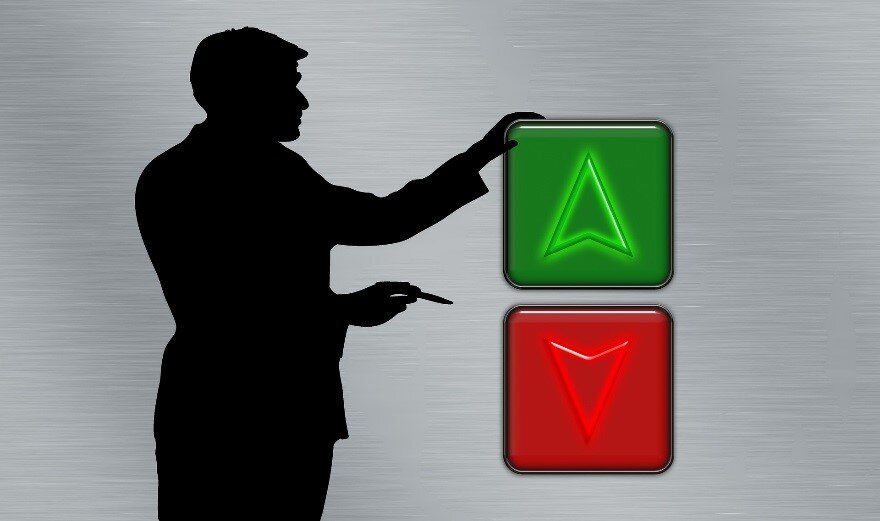Your Elevator Pitch Keeps You Ready for Unforeseen Opportunities (and those you expect)
Imagine for a moment you're attending a business conference and you suddenly find yourself in a one-on-one encounter with one of the “Sharks” from the popular TV show Shark Tank. Imagine further that, after you greet them, they happen to ask what you do for a living. Would you have a quick, clear answer ready to go? What if you had a solid new product idea and were the conference looking for an investor? Here you are, with one of the most curious angel investors in the country right in front of you and, without your elevator pitch ready to go, you have to wave goodbye and look for an investor elsewhere.
That is a missed opportunity. Will you be ready next time?
Granted, the scenario described above is unlikely for most of us. However, in business and life, unforeseen opportunities do crop up from time to time. There are also expected meetings where you may have a chance to promote yourself and your business. While they won’t all be opportunities to “cash in” with shark-like investors, they could easily lead to new projects or referrals.
Being ready at all times, by developing and memorizing your elevator pitch, just might be the best tool you can carry with you every day.
Merge Your UVP and USP into Your Elevator Pitch
Now that you’ve spent hours sweating over your Unique Value Proposition (UVP) and Unique Selling Proposition (USP), we’re going to ask you to invest even more of your precious time and mental energy to create your elevator pitch.
Again, let’s define our terms. An elevator pitch is a “short, yet effective speech should be the most stellar speech that you can give to promote your company, your expertise, and your purpose within your industry.” (ClearVoice.com)
In other words, if we go back to the Shark example and put you in an elevator with one of them, could you clearly describe your business, your vision, and your goals in the 45-90 seconds it might take to reach their floor?
THAT is why we call it an elevator pitch. It’s a tool you can use to generate interest in what you do without taking up too much of the other person’s time.
“Your elevator pitch is a way to share your expertise and credentials [as well as your vision] quickly and effectively with people who don't know you.” (BalanceCareers.com)
It works whether you're looking for a job, seeking a business partner/investor, or trying to turn a prospect into a client.
Why You Need an Elevator Pitch
Why are they important – and effective?
An elevator pitch is especially effective when you're talking to a stranger or new contact who asks, “What do you do?”
“In situations like these, you need a short, snappy, easy-to-grasp explanation of your company and its products [or services]. The person you're speaking with might turn out to be a perfect fit – or know someone who is.” (HubSpot.com)
However, to be clear: “An elevator pitch is never an opportunity to close a deal. It's an opportunity to close more of your prospect's attention and time. It's a quick introduction to you, your company, and how you can help your prospect.”
You need to think of your elevator pitch as an attention-getter. It should be engaging and friendly, without trying to “make a sale”. Rather, your goal should be to generate interest and to get more of your prospect’s curiosity, time, and attention.
According to HubSpot, your elevator pitch should include:
-
Who you are
-
What your company does
-
Your unique value proposition
-
Your unique sales proposition
-
Your vision
If you can do all of these things in 30-45 seconds (or 90 seconds max), you are sure to get their attention and generate interest. Once you create a pitch you think is worthy of use, you’ll need to read and re-read it, then edit the pitch. Then, you’ll want to practice it incessantly, in front of others, and a mirror, until you have it memorized but can deliver it as if you’ve never said it before.
You want your elevator pitch to flow, to seem natural and off-the-cuff, rather than rehearsed and/or overused. Keep it fresh. Make it pithy. Always make sure it accurately reflects what you do.
Ted remains available for business consulting support to interior designers and furnishing store owners. With more than 25 years' experience in the luxury furnishings industry, he can answer questions about everything from general marketing to specific tips for developing a unique selling proposition and your UVP as the foundation and guides for your marketing strategy… Get in touch with TD Fall today.

